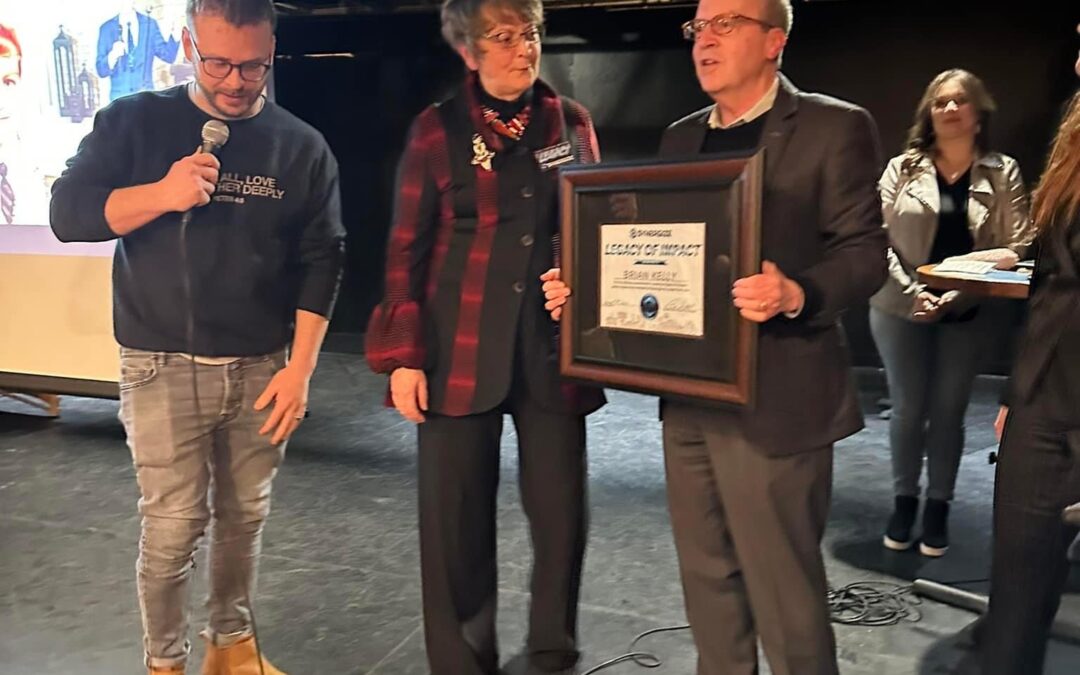From an interview that took place in Summer 2022
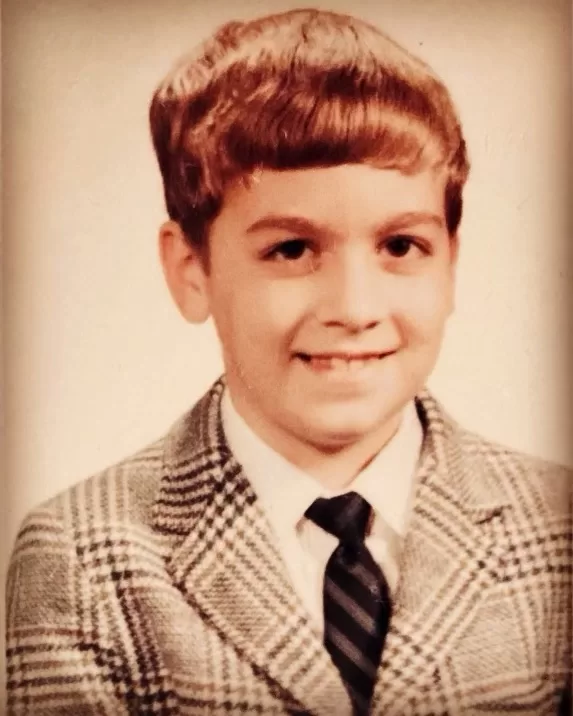
Brian Kelly will readily admit that he was a nerdy kid. “I read newspapers, even though most kids don’t,” he says. “I loved flipping through them and finding out what was going on around me. There was always a pull there of some kind.”
By following that pull, Brian became one of those rare people who has managed to support himself and his family on the back of a lifelong passion. As President and Publisher of Current Publishing, he’s responsible for six newspapers that reach nearly 130,000 households in Carmel, Westfield, Noblesville, Fishers, Geist/Lawrence and Zionsville.
Brian isn’t an Indiana native – he was born in Detroit, MI, but spent most of his childhood years in Cincinnati – but he’s been a proud Hoosier since 1984. While attending college at IU Bloomington, Brian got plugged into selling advertising for the Indiana Daily Student, the campus’ main newspaper. At the time, the IDS published 5 days per week: a hefty schedule for a student-run publication.
The IDS gave Brian his first look behind the scenes at what makes a paper tick. He fell in love immediately. “We just had a ball. I skipped a lot of classes to do my work for the paper,” he admits. He started building relationships with several local business owners, selling ad space to them to promote their businesses to the students.
Working with the IDS was a great opportunity for Brian to make a little money and get to know Bloomington’s business community. Brian has very fond memories of working with Mark Cuban, who regularly bought ads for Motley’s Pub, the bar he owned at the time. “He ran big ads and gave me free beer when we were laying them out,” he recalls.
After graduating from college, Brian started working for a trade magazine publishing company in New Jersey in the early 1980s. He went from chatting with small business owners in Bloomington to covering the up-and-coming computer and software industry. It was a fun job on the cusp of the digital age that allowed him to travel to trade shows like COMDEX. It wasn’t uncommon, he said, to see future household names like Bill Gates walking from booth to booth.
Since he was young, single, and willing to try anything, the magazine transferred Brian across the U.S. a few times over the years he worked for them. “I had a tremendous experience, but I did know I wanted to get back into newspapers one day,” he says. Finally, in 1986, Brian moved to Indiana and launched his first paper: the Greenwood Gazette.
As he began his own entrepreneurship journey, Brian drew from the qualities of the early adopters and visionaries he’d encountered over the years. His mentor, Bob Montgomery, of Montgomery, Zuckerman and Davis, helped him flesh out his plans. “I’d come in with an idea and he’d help deconstruct it, point out the things I wasn’t seeing,” says Brian.
One piece of Montgomery’s advice that made a huge impact on Brian’s point of view was the idea of negative thinking. “Every entrepreneur, that’s what they’ve done,” he points out. “They looked at something and said, ‘there’s something missing from the process I’m observing here’. It could be more efficient. It could be a lot faster. It could be a lot better.”
Truth be told, a lot of what Brian needed to succeed in his life was already within him; he just needed the right people to call it forward. Brian has a dogged sense of perseverance and a core belief that the world owes him nothing until he puts in the work to get it.
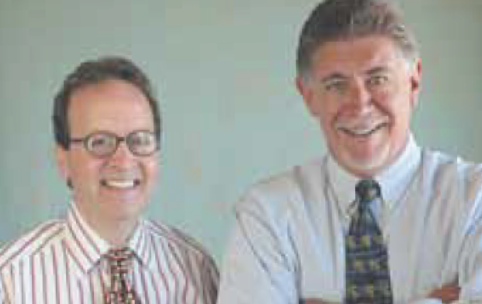
Because of his persistence, he’s not afraid to create or follow through on large-scale ideas that would terrify any ordinary person. “I never wanted to settle for a boring life,” he explains. “I’ve always admired people who were willing to give up what was comfortable for a chance at something better.”
Brian is also a lifelong learner, and often looks to history to shape his leadership. He particularly admires the iron mentality of Margaret Thatcher. “She was a tough, no-nonsense leader,” he says. “She’s one of my heroes. One of my favorite quotes was from her speaking to President George H. W. Bush; ‘George, this is no time to go wobbly’. She had convictions where others had none.” It reminds him to stand firm in times of trouble and, as a leader, never give in to fear.
Over the course of his life, Brian has gleaned a lot of his historical knowledge from books. “There’s nothing more exciting than our history, good and bad. I love reading about history – or what I think is history,” he clarifies. “Oftentimes, what we learn in school isn’t the full story. You think you know history, because of the pieces you’ve been told… a lot of history is written by a mainstream group, and it fits their narrative.” He especially loves books that take a deeper dive into a person or historical event, like biographies, since they help him gain a clearer view of the full picture.
This constant search for the truth behind the widely held narrative is one trait that equips Brian to run newspapers in a time when ‘news’ isn’t always a trusted source. “It’s the role of the local newspaper to have an opinion, to an extent,” he says. “It’s also our role to accurately inform our readers so that they can engage in the community.”
“There’s probably no such thing as an unbiased journalist, but I’m proud of our staff,” he adds. “In the same week, or sometimes even in the same day, someone will accuse us of being too conservative and someone will accuse us of being too liberal. We get that a lot, and it tells us that we’re probably shooting right down the middle.”
Although American news is rife with political division, Brian sees newspapers as his way to create community instead of pitting people against each other for views. “The powerful connectivity of newspapers is incredibly unique,” he says. “It’s a way to slow everyone down for a moment and inform them about their communities.” Rather than bombarding its readers with clickbait and ads, a newspaper gives readers a slower-paced way to connect with local stories.
Because he feels strongly about connecting his readers to his community, Brian has always used his businesses as one way to give back. Current donates ad space to dozens of nonprofits, including Synergize’s monthly 4:30 Meetup beneficiaries.
have been victims of sexual assault. Current has supported Prevail for sixteen years. “The work they do is lifesaving,” Brian says. “Someone who goes through that trauma may not even know where to start or who to tell. And Prevail is there every step of the way.”
Today, Brian’s in a spot where he can do things like donate ad space to causes he loves. But back at the Greenwood Gazette, it wasn’t nearly as easy. After the initial excitement of launching the paper wore off, selling ad space to keep it running was an uphill climb.
For a long time, Brian wasn’t sure whether he’d be able to make payroll. “I was a step away from failing,” he says. “To this day, when I read about a business folding, I get a queasy feeling. That was almost me, back in the eighties.”
Despite his fears, Brian kept knocking on closed doors until they opened. As he worked through the startup woes and mistakes, his persistence turned the Greenwood Gazette into a highly successful paper in the area. It caught the attention of Central Newspapers, which owned the Indianapolis Star at the time, along with several other national newspapers. They bought the Greenwood Gazette from Brian in 1996.
It was both a high and a low moment for Brian. After a decade of growing the paper, it was incredible to see the proof of its success. But once he’d sold it, he felt, as he puts it, unmoored. Although they kept him on staff in a supporting role, he ended up stepping away after a year. “I thought it’d be a great learning opportunity,” he said.
It was, but not in the way he expected. “I saw a tremendous level of arrogance in how they operated and the decisions they made. That’s a lesson all of us can learn. If you get too full of yourself, you’re going to get knocked down.” He recalls, shaking his head. “I couldn’t understand where the arrogance was coming from. No one was reading their product. Circulation was tanking.” (Central Newspapers has since been acquired by a larger company.)
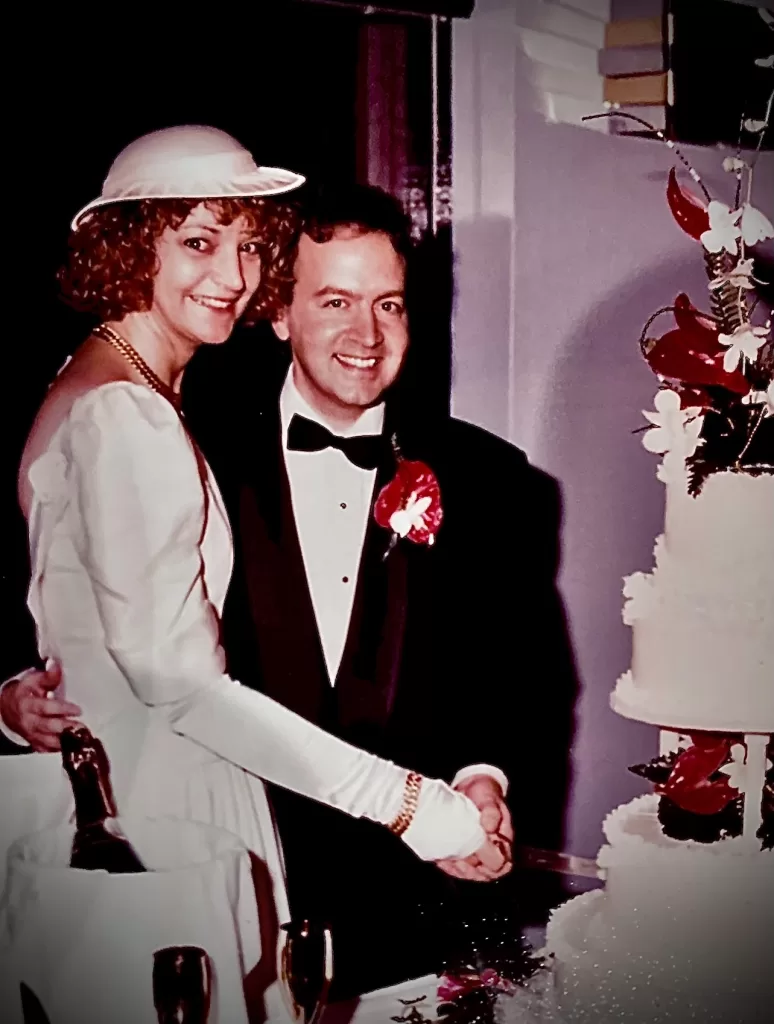
But of course, without ownership, Brian had no say. As his wife, Maggie, told him, “It’s their plane. If they want to fly it into the side of a mountain, let them do it.” She’s a voice of reason for Brian and has been since they met. He describes her as a true partner in life; someone who comes alongside him and complements his weaknesses. “She’s a great detail person. She’s great with figures. She has an almost uncanny ability to look down the road and see the consequences of a decision,” he says fondly.
Brian and Maggie are both from Cincinnati, but didn’t meet until they banded together to help launch NUVO in 1990. NUVO was an alternative weekly in Indianapolis that featured entertainment news and listings. Back when the two of them met, Maggie was a VP at Montgomery, Zuckerman and Davis, who developed NUVO’s marketing and advertising strategies. While the NUVO brand is still alive to this day, with stories available on the web, it published its final print issue in 2019.
After Brian and Maggie got married, he “suckered her into his companies”, as he says. Today, she’s the bookkeeper at Current Publishing. “It was a rough start, because we’re both kind of control freaks, but once we staked out our own areas it worked really well,” he says. Not only is she his wife, she’s also a great friend to him, and one of the most impactful people in his life.
Maggie’s foresight and support was an asset to Brian when he and Steve Greenburg teamed up to found Current Publishing. With a few publication launches under his belt, Brian felt ready to enter a new community. The two of them conducted a lot of research, with both readers and local businesses, before launching. The effort paid off; with an initial circulation of 26,000, it ballooned to nearly 130,000 today. “We were delivering to them what they said they wanted in their local newspaper, so we connected right away,” Brian explains.
Today, Current Publishing works out of a property on Range Line Road in Carmel. Brian recalls their first office fondly; it was a 700-square foot room. On production day, the room was full of people. It was spanned by enough wires to give the Fire Marshal a heart attack, and so loud that anyone conducting an interview would have to do so in the building’s lobby.
“Thankfully, the community was right behind us. Our readers and advertisers were very supportive. And we had a great staff – we have an even better staff now. We have some real pros working for us. It’s intimidating at times,” Brian admits, “but that’s a good thing.”
Today, Current’s newspapers cover six communities – Carmel, Fishers, Noblesville, Westfield, Zionsville, and Lawrence/Geist – and are read by nearly 130,000 households. In addition to Current Publishing, Brian has a few sister publications that he also owns: The Southside Times, Center Grove Icon, Hendricks County Icon, and Hendricks County Business Leader.
Although Carmel was Current’s first community, that’s not the only reason its central hub is here. For him, Carmel is home. “Hope for me comes from watching our community on a daily basis,” he says. He loves being a part of events like Carmelfest, where the community comes together to celebrate each other and have fun.
“Carmelfest is a great example of something people think just happens. But the moving parts behind all that, and all the volunteers, are extraordinary. They’re just doing this to help their community,” he says.
It renews Brian’s sense of purpose to watch people invest in their communities. “We’re very fortunate to be in communities like ours, where people care about schools, and parks, and city government. People are engaged in what’s happening here. Sometimes sparks fly, and we view those sparks up close. But everyone has a right to their say, as long as it’s in good taste,” he says. “You have to have a certain level of civility. But we have that in all of our communities.”
The downside of Brian’s passion being his work is that it adds a lot of uncertainty to his future. His next challenge will be learning how to reconnect with his family, his community, and with himself – as Brian, not as Brian Kelly of Current Publishing.
“I’m thinking about my exit plan, now that I’m older,” he admits. “Maggie and I want to do some different things.” It’s not the concept of passing the torch that frightens him; it’s letting it go. “I have no rose-colored glasses. It’s going to be a very difficult transition. But it’s one we all have to do at some point, right?”
Shortly after this story was written, Brian officially announced his retirement from Current Publishing. He has left Current Publishing’s legacy in good hands. As proof of that, Ben Weir, who joined as a partner and VP two and a half years ago. He will succeed Brian as president and publisher. “Ben has had a great impact here and has done a phenomenal job, and he represents the future of our company. We have younger leadership now,” he says. He trusts the people he’s hired to do the job well.
One thing Brian thinks he’ll enjoy is taking time to slow down with the people around him. “I didn’t spend much time with my family for a long, long time. That’s time I can’t get back, but I was working. That’s not a unique story for an entrepreneur. Building a business is a huge personal sacrifice.”
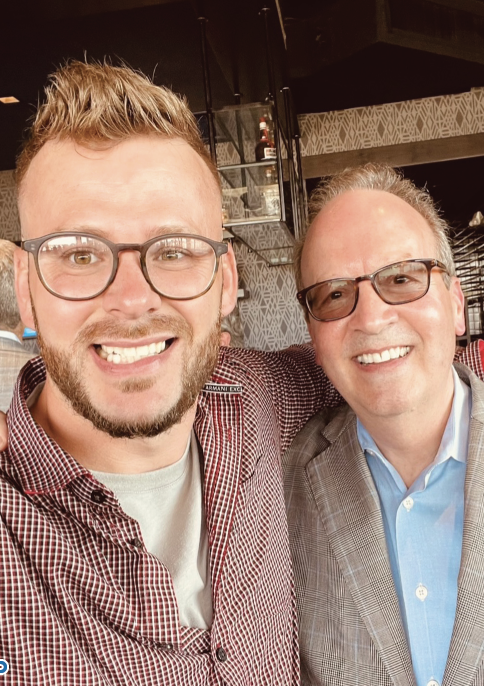
“But,” he adds, “I also know entrepreneurs who do a good job of prioritizing family and things like that. Ultimately, it was my decision to work as much as I did.” His advice to those like him: “I think all entrepreneurs should take time off. Time moves so, so fast.”
How Brian will fill his days outside of family remains to be seen. “I don’t really have hobbies besides reading,” he says. “Most people I know tinker with things, and I don’t have talents like that. Some people like gardening or working in the yard. I think I’d rather go to jail.”
When he looks at the days stretching ahead of him, the prospect of empty time puts Brian on edge. But he’s determined to try new things and find what fits him. “What excites me about the future is the opportunity to do something different. That might be fun, as terrifying as it is,” he says.
As long as he’s participating and investing in some kind of community, it’s likely Brian will find a happy future. His passion for bringing people together is a legacy that will outlive any business in the lives of those who know and love him. Even more importantly, his search for the authentic perspectives of the people around him will always make him a valued friend.

